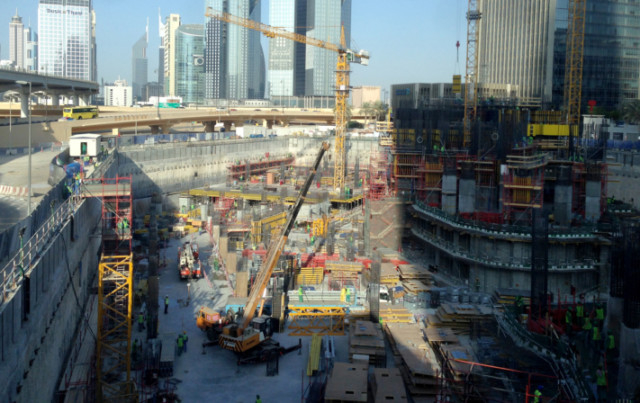
Dubai: Sentiments, rather than actual fundamentals, could get in the way of investor interest in the Gulf’s property market, principally in residential.
As has been the case on the stock exchange, investors could take a more cautious approach towards realty exposures given how oil prices have been behaving. However, it is quite unlikely that any such impact from the oil pricing would run deep.
“Historically, there has been a reasonably strong correlation between the Dubai Financial Market General Index (DFMGI) and residential property prices; if this relationship holds, home prices in the emirate should continue to trend down,” says a new update issued by Knight Frank, the consultancy. “Dubai, Abu Dhabi, Qatar and Oman’s bourses have all recently suffered losses on the back of falling oil prices.”
According to Sameer Lakhani, Managing Director at Global Capital Partners, “The gap in oil prices will impact liquidity in the region as budgets get squeezed. This will play out in the form of downward pressure on asset prices, including real estate values and on rentals.
“This move will evolve over the next six months, implying that institutional monies will sit on the sidelines waiting for these asset prices to adjust lower. Accordingly, institutional flows will reduce over the first-half, but we anticipate larger flows later in the year as bargains become more evident.”
But, according to Knight Frank, the region’s commercial real estate will show better resilience to a soft oil price as compared to residential. And so will wider construction sector given that the current wave of projects are predominantly led by governments and public sector entities.
“Commercial property though should be relatively resilient given that firms tend to take a medium to long-term view — which continues to look positive for the GCC — when launching expansion plans,” the report adds. “With government spending in the GCC unlikely to be curbed, infrastructure construction activity should provide a strong basis for growth in the real estate sector.
“This is important given that large publicly funded, infrastructure-related schemes tend to stimulate hinterland construction activity, and thus support
growth in the real estate sector. And there is plenty scheduled to be built.
“According to a recent report by Ventures Middle East, the total value of contracts awarded in the GCC is projected to rise to approximately $196 billion this year, from almost $160 billion last year — an annual increase of 22 per cent.”











